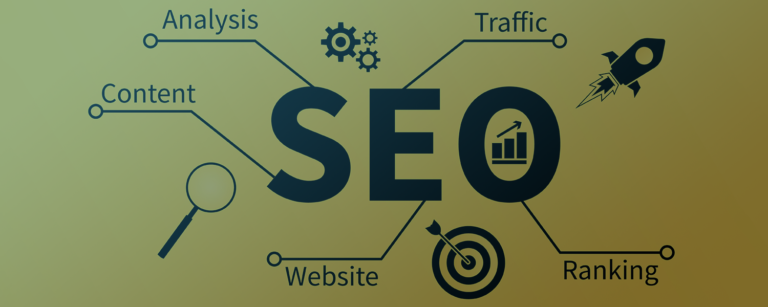In the digital age we live in, proper data protection in dropshipping is becoming increasingly crucial for business owners. As a dropshipping operator, you face unique data security challenges and legal obligations that require careful attention. This comprehensive guide explains everything you need to know to ensure GDPR compliance and protect your customers‘ sensitive information.
Table of Contents
What is Dropshipping and Why Data Protection Matters
Data protection in dropshipping presents unique challenges due to the business model’s structure. In dropshipping, you operate as a merchant selling products without maintaining inventory. When customers place orders, you purchase products from suppliers who ship directly to your customers. This makes you the crucial intermediary managing sensitive customer information.
In this process, you handle sensitive customer data including names, addresses, and payment information. This data doesn’t just facilitate shipping—it’s subject to strict data protection regulations. Under the General Data Protection Regulation (GDPR), European customers have significant rights regarding their personal information. Even non-EU dropshipping businesses serving EU customers must comply with these regulations or face severe penalties.
According to a recent Statista report, e-commerce businesses experienced a 42% increase in data breaches in the past year, highlighting why proper data protection in dropshipping is not optional but essential.
Legal Foundations and Obligations
General Data Protection Regulation (GDPR)
The GDPR forms the cornerstone of data protection for dropshipping businesses operating in or serving customers in the European Union. This comprehensive regulation:
- Applies to all businesses processing EU citizens‘ data regardless of company location
- Establishes strict guidelines for lawful data collection and processing
- Requires transparency about data usage and storage
- Grants specific rights to individuals regarding their personal information
- Imposes significant penalties for non-compliance (up to €20 million or 4% of annual global turnover)
For dropshipping businesses, implementing proper data protection in dropshipping operations isn’t just about avoiding fines—it’s about building customer trust through responsible data handling.
Privacy Policy Requirements
Every dropshipping store must maintain a clear, accessible privacy policy that details:
- What personal data you collect from customers
- How and why you process this information
- The legal basis for data processing
- Data retention periods
- Information about data sharing with third parties (including suppliers)
- Security measures implemented to protect data
- Customer rights regarding their personal information
Your privacy policy should be easily accessible from every page of your website, typically through a footer link. For data protection in dropshipping operations, this document serves as both a legal requirement and a trust signal for cautious customers.
Data Processing Agreement (DPA)
A Data Processing Agreement (DPA) is essential for dropshipping businesses, as you regularly share customer data with suppliers and fulfillment partners. This legally binding contract:
- Defines the roles and responsibilities of each party handling customer data
- Establishes data security requirements your partners must follow
- Outlines procedures for data breaches and incident responses
- Ensures your suppliers maintain GDPR compliance when processing customer information
Without proper DPAs, your dropshipping business bears full liability for any data protection violations by your suppliers. For comprehensive data protection in dropshipping, always establish these agreements before sharing any customer information.
You can find guidance on creating compliant DPAs through resources like the European Data Protection Board, which offers authoritative templates and best practices.
7 Essential Security Measures for Customer Data
1. Data Minimization Principles
The principle of data minimization is fundamental to proper data protection in dropshipping. This means:
- Collecting only information that’s absolutely necessary for order processing
- Avoiding excessive data collection that doesn’t serve a specific business purpose
- Regularly auditing your data collection practices to eliminate unnecessary fields
- Setting appropriate data retention periods and implementing automatic deletion
By minimizing the data you collect and store, you reduce both compliance requirements and potential exposure in case of a breach.
2. Data Encryption Best Practices
Implementing strong encryption is crucial for data protection in dropshipping operations:
- Use HTTPS protocol with TLS 1.3 or higher for all website communications
- Implement end-to-end encryption for customer data transmitted to suppliers
- Encrypt stored customer data at rest using industry-standard algorithms
- Secure payment processing through PCI-DSS compliant systems
Encryption transforms sensitive information into unreadable code for anyone without proper authorization, significantly reducing the risk of data exposure.
3. System Security Implementation
Comprehensive security systems protect your data protection in dropshipping infrastructure:
- Install and regularly update firewalls and anti-malware software
- Implement strong password policies and multi-factor authentication
- Conduct regular security updates and patches for all systems
- Restrict access to customer data on a need-to-know basis
- Train staff on security best practices and potential phishing threats
4. Data Protection Impact Assessment (DPIA)
A Data Protection Impact Assessment (DPIA) helps identify and minimize data protection risks in your dropshipping operations:
- Required when processing activities present high risks to individuals‘ privacy
- Helps identify potential vulnerabilities in your data handling processes
- Documents your compliance efforts and risk mitigation strategies
- Demonstrates due diligence in data protection in dropshipping operations
5. Managing Data Subject Rights
GDPR grants specific rights to individuals regarding their personal data. Your dropshipping business must implement procedures to honor:
- Right to access personal data you’ve collected
- Right to rectification of inaccurate information
- Right to erasure („right to be forgotten“)
- Right to restrict processing
- Right to data portability
- Right to object to certain processing activities
Create clear protocols for handling these requests within the required timeframe (typically 30 days) to maintain data protection in dropshipping compliance.
6. Secure Data Transfer to Third Parties
Dropshipping inherently involves sharing customer data with suppliers and fulfillment partners:
- Establish secure data transfer protocols with all third parties
- Use encrypted channels for transmitting customer information
- Share only the minimum necessary information required for order fulfillment
- Verify that all partners maintain appropriate security standards
- Document all data transfers in your record of processing activities
Properly managing these relationships is central to maintaining strong data protection in dropshipping operations.
7. Anonymization and Pseudonymization
When possible, implement data transformation techniques to enhance privacy:
- Anonymization: Permanently removing identifying information from data
- Pseudonymization: Replacing identifiers with pseudonyms while maintaining separate matching references
These techniques can reduce compliance requirements for certain processing activities while maintaining data protection in dropshipping operations.
Implementation Strategies for Dropshippers
Implementing robust data protection in dropshipping requires ongoing attention:
- Conduct regular compliance audits to identify and address weaknesses
- Stay informed about evolving data protection regulations and requirements
- Document all data processing activities and security measures
- Provide regular training to team members on data protection best practices
- Consider appointing a designated data protection officer (required in some circumstances)
Conclusion: Building Trust Through Data Protection
Effective data protection in dropshipping isn’t just about legal compliance—it’s a business advantage that builds customer trust and loyalty. By implementing the seven essential security measures outlined in this guide and maintaining transparency about your data practices, you create a foundation for sustainable business growth.
Remember that data protection is an ongoing process that requires regular review and adjustment as regulations evolve and your business grows.
Have you implemented data protection measures in your dropshipping business? What challenges have you faced? Share your experiences in the comments below!






